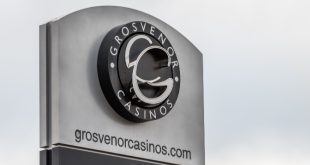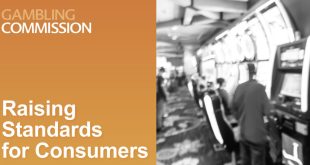 In a series of articles, David Clifton, director at licensing and gambling consultancy Clifton Davies, takes a look at the changes to the UK’s gambling licensing laws which are due to be in place by October.
In a series of articles, David Clifton, director at licensing and gambling consultancy Clifton Davies, takes a look at the changes to the UK’s gambling licensing laws which are due to be in place by October.
The big question is whether the GBGA is too late with its point of consumption legal challenge.
Through its solicitors, in letters before action dated 18 June 2014 the Gibraltar Betting and Gaming Association (GBGA) threatened the Secretary of State for Culture, Media and Sport, the Attorney General and the Gambling Commission with a judicial review on the ground that the new remote gambling licensing regime breaches Article 56 of the Treaty on the Functioning of the European Union because it constitutes an illegitimate, disproportionate and discriminatory interference with the right to free movement of services. Those in receipt of the letters had until 16 July within which to respond but their replies have not been made publicly available.
However, it can now be safely assumed that any such replies were deemed unsatisfactory by the GBGA because on 18 August it announced that:
- it had commenced legal proceedings on the above-mentioned ground and
- because the new regime will come into force as soon as 1 October 2014, it has asked the Court for an expedited hearing of its case.
A news item here reports that the GBGA is arguing before the Court that “the absence of effective supervision and enforcement, coupled with the burdensome regulatory requirements, will encourage the growth of and migration to unregulated or poorly regulated operators which will present genuine risks to the British consumer” and that it believes that the new regime was designed for economic reasons “to grant UK operators a competitive advantage over those from overseas”
Peter Howitt, chief executive of the GBGA, is quoted as saying: “It is extremely disappointing that our concerns have not been listened to by the UK Government, and that the Gambling Commission’s plans to expand its remit have been accepted. The only beneficiaries of this change are the UK domestic industry and the Gambling Commission itself, which has persuaded the UK Government that it should be the global regulator of this high tech and complex industry. It has neither the resources, the legal powers, nor the skills to operate successfully across the globe. This is bad news for consumers, and for international competition. We have an effective and knowledgeable regulator in Gibraltar. That the Gambling Commission believes it is better placed to regulate the industry here is laughable. We are determined to fight against measures that actually undermine consumer protection.”
Procedurally, the commencement of JR proceedings could not have been left much later, although arguments would have existed that they were being made too early had they been commenced before the Gambling (Licensing and Advertising) Act 2014 received Royal Assent on 14 May.
Although many commentators believe that the true motivation behind the 2014 Act was taxation rather than increased consumer protection, a consensus appears to be growing that whilst some merit clearly exists in the arguments being advanced by the GBGA, the reality is that a judicial review is probably unlikely to succeed, not least because certain of the members of the GBGA have made it clear that they will not associate themselves with or fund the proceedings.
On behalf of the Gambling Commission, Chief Executive Jenny Williams has publicly stated that a judicial review will not delay or derail implementation of the new licensing regime. However, ultimately that would be a matter for the Court to determine as part of the JR process.
In the meantime the Gambling Commission has been beavering away. Have they introduced any alarming conditions?
The Gambling Commission has plenty of beavering away still to do, with Jenny Williams stating last month that before the 16 September deadline the Commission expects about 150 operating licence applications from remote gambling operators currently able to provide facilities for gambling in Great Britain (because they hold a licence in an EEA (including Gibraltar) or white-listed jurisdiction).
Based on my dealings with operator clients, the following – some of them new LCCP or licence application requirements and some old but being encountered by operators licensed elsewhere for the first time – are the factors that are giving rise to the greatest concerns:
- The requirement that both B2C and B2B operators provide details of the markets to which they provide (or propose to provide by actively targeting) gambling facilities or services and the revenue that each such market generates as a percentage of overall revenue
- The extent of personal disclosure required from those with overall responsibility for key management functions or who are otherwise persons relevant to the licence application
- The need for independence (from any other specified management office) of the compliance function
- Difficulties in obtaining overseas police reports or the equivalent
- Continuing confusion about who within the supply chain needs a gambling software licence, particularly bearing in mind the often complex contractual arrangements that govern the development of such products
- Lack of awareness of the need on the part of gambling software suppliers who provide platforms or networks that they may need to obtain operating licences because they could be regarded as providing facilities for gambling
- The need or otherwise to arrange re-testing of games already made available to consumers in Britain from EEA or white-listed jurisdictions
- The circumstances in which a business is able to apply for an umbrella licence to cover the activities of group companies
- Continuing doubts whether non-British licensed operators who block access by British consumers are permitted to advertise to overseas markets by means of football shirt sponsorship or ground perimeter advertising in Britain.
Tomorrow, I will look at the Gambling Commission’s new 3% rule.
_______________________
Anyone wanting to contact David about the issues raised in this week’s series of Clifton Davies’ articles can email him at [email protected] or via the website at www.cliftondavies.com








